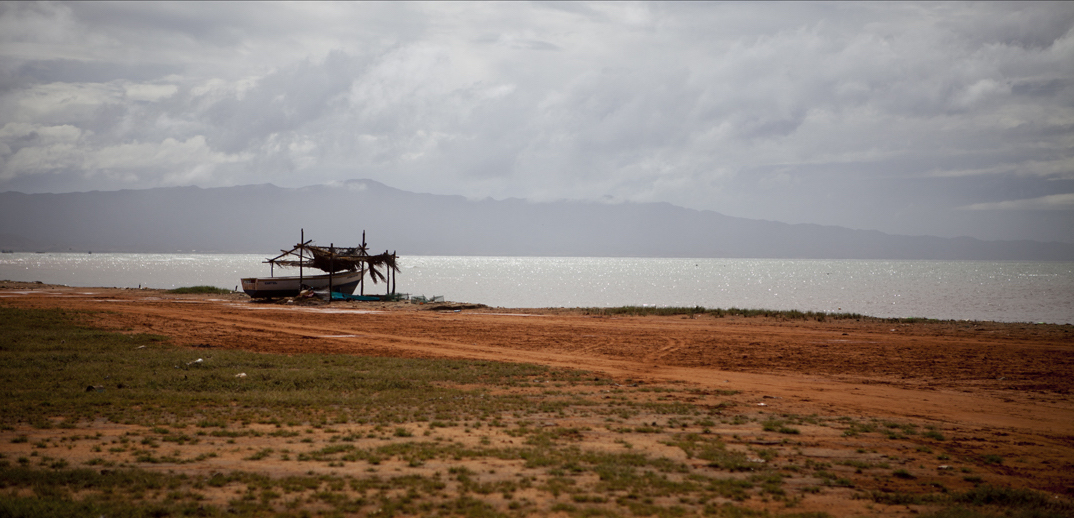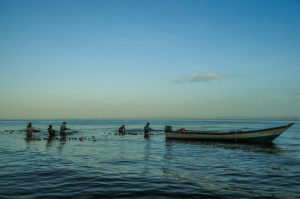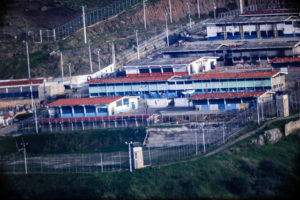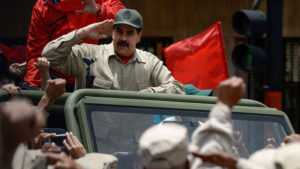Here There Be Pirates: The Rise of Illicit Economies in Venezuela
 Featured photo caption: At Chacopata in Sucre State, Venezuela. Estado Sucre, hard hit by food shortages, is the home of fisherman increasingly turning to piracy. https://flic.kr/p/9caWb1
Featured photo caption: At Chacopata in Sucre State, Venezuela. Estado Sucre, hard hit by food shortages, is the home of fisherman increasingly turning to piracy. https://flic.kr/p/9caWb1
Since the food riots began two years ago in the coastal Venezuelan state of Sucre, piracy has seen a sharp spike. Fisherman have been shot dead off the coast of Suriname. Commercial tankers have been boarded by robbers and assailants while at anchorage. In 2017, Oceans Beyond Piracy reported a 163% increase in reported incidents of piracy in the Caribbean region.
The increase in piracy off the Venezuelan coast comes at a time of economic and political turmoil in Venezuela. Government institutions, weakened under former ruler Hugo Chavez, have disintegrated further under President Nicolas Maduro. The state-controlled economy, already struggling under the demands placed on it by Chavez’ state-spending, is in free fall under Maduro’s mismanagement. The democratic checks and balances that may have limited the negative impacts of Chavez and Maduro’s policies have long been rendered ineffective.
International media has commented on the similarity between the shores of Venezuela and Somalia. The comparisons are premature; Venezuela has been largely spared the violent conflict that occurred in Somalia. However, some similarities are evident: both countries have experienced economic breakdown, and the people must cope or starve. But at what cost to the already beleaguered state?
Increasingly, some Venezuelans are turning to extralegal activities to survive. As the government breaks down, its authority over the economic activities conducted within its territory decreases. Piracy is evidence of that, as is the blossoming of organized crime.
The development of extralegal activities in a failing state – and indeed of illicit economies – follows a rule in both the Venezuelan and Somalian case. Venezuelans and Somalis alike make use of their pre-existing economic resources inherited from a period of relative economic stability. They put them to extralegal use of necessity, and thereby further degrade the rule of law.

Venezuelan pirates are the inheritors of what was once the fourth largest tuna fleet in the world. 94% were artisanal fisherman, largely supplying the internal market.
Then, Hugo Chavez came to power under promises of achieving food security. To actualize this promise, his government adopted policies that undercut domestic industries, including fishing. With the proceeds from the export of Venezuela’s vast oil resources, the Chavez government imported commodities and sold them at subsidized rates. When oil prices dipped and imports became increasingly unaffordable, the government imposed price controls. Domestically-produced products, like tuna and sardines, were already unable to compete with subsidized imports. Now, they could not be sold at a profit.
With few alternatives available, former fisherman made use of their remaining economic means to get by. Armed with artisanal fishing vessels and marine expertise they are able to smuggle food, drugs, and even people between Venezuela, Colombia and Trinidad and Tobago.
In Somalia in the early 2000s, piracy developed into an illicit economy in the former fishing villages of the newly semi-autonomous coastal state of Puntland. Successful fisherman-turned-pirates organized and ran the pirate economy as de facto warlords. While no such economic system has been reported in coastal Venezuela, organized crime has taken on similar characteristics across the country.
Gang leaders called “pran” or “pranes” have long run the countries’ penal institutions via their prison gangs. They have transformed the detention centers into oases of relative luxury in an economically troubled country, well stocked with government-rationed food in times of crisis. As a product, prison terms have lost punitive meaning – it is safer in prisons than on the street.

The Venezuelan security forces meant to exercise authority and patrol prisons are watching their salaries dwindle amidst inflation. The minimum army salary is now $2 a day. Police are targeted in armed robberies for their guns.
So, like fisherman and gangsters, the Venezuelan security forces have found a way to make their available resources profitable. Guards stationed at hospitals demand bribes to allow food and medicine into the facility. The National Guard posted at prisons charge levies on the contraband moving in and out. Law enforcement members guarding public institutions have created an unofficial tax system.
The actions of organized criminals and corrupt security forces predate the economic deterioration of Venezuela. The expansion of illicit activities by both groups serves as an indicator of decreased government control. Yet, it is the shift of the civilian fisherman to criminal activity that indicates the insidious chaos brought about by the failure of the Venezuelan government to maintain the economic order and the rule of law.

Maduro’s government still exists, though it has ceased to function as it should. While Maduro is focused on holding his borders, he has lost economic authority over much of his people. The situation is not as dire as that in Somalia in the 2000s – Somalia, after all, has experienced statelessness – but the rise of illicit economies in the failing state of Venezuelan is on a similar path. It is too early to draw conclusions on where the Venezuelan state will end up, but it is clear that the people, at least, have found an answer: they will seize whatever is at hand, and feed themselves – with or without a state.
Edited by Natalie Gastevich.
